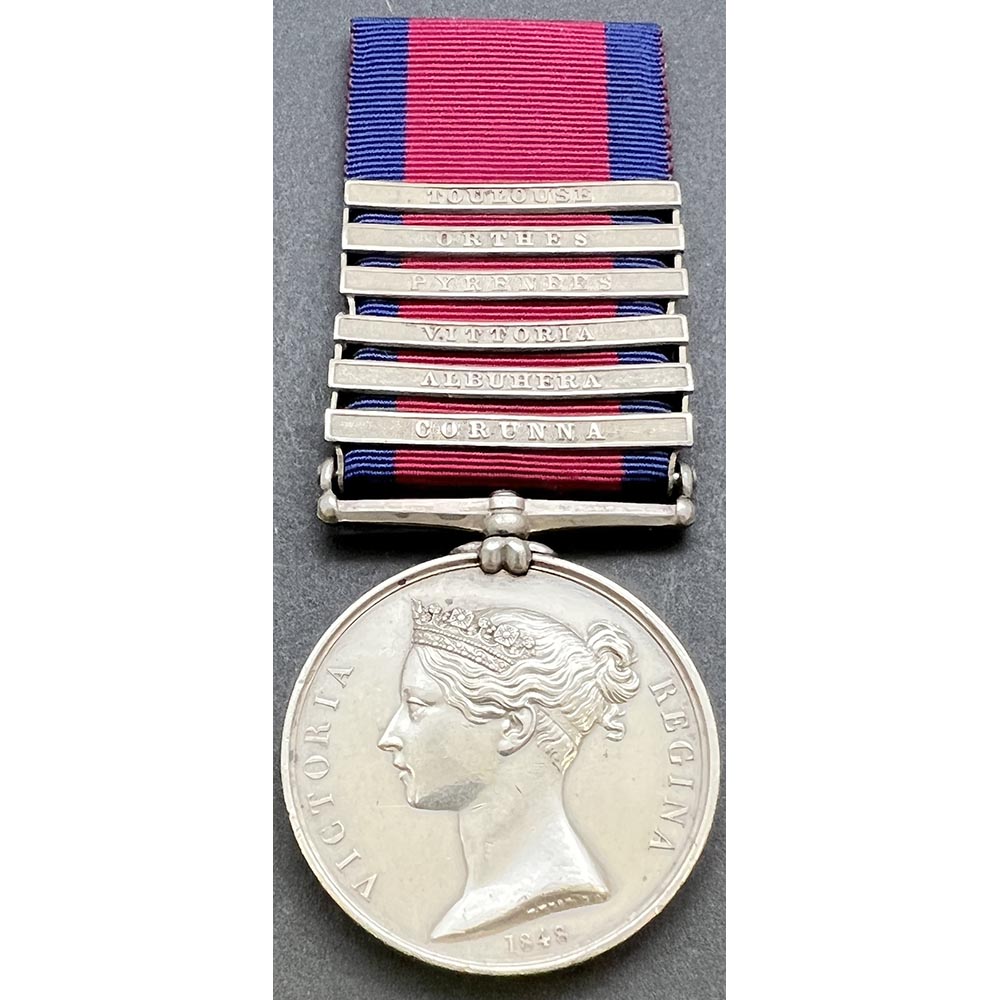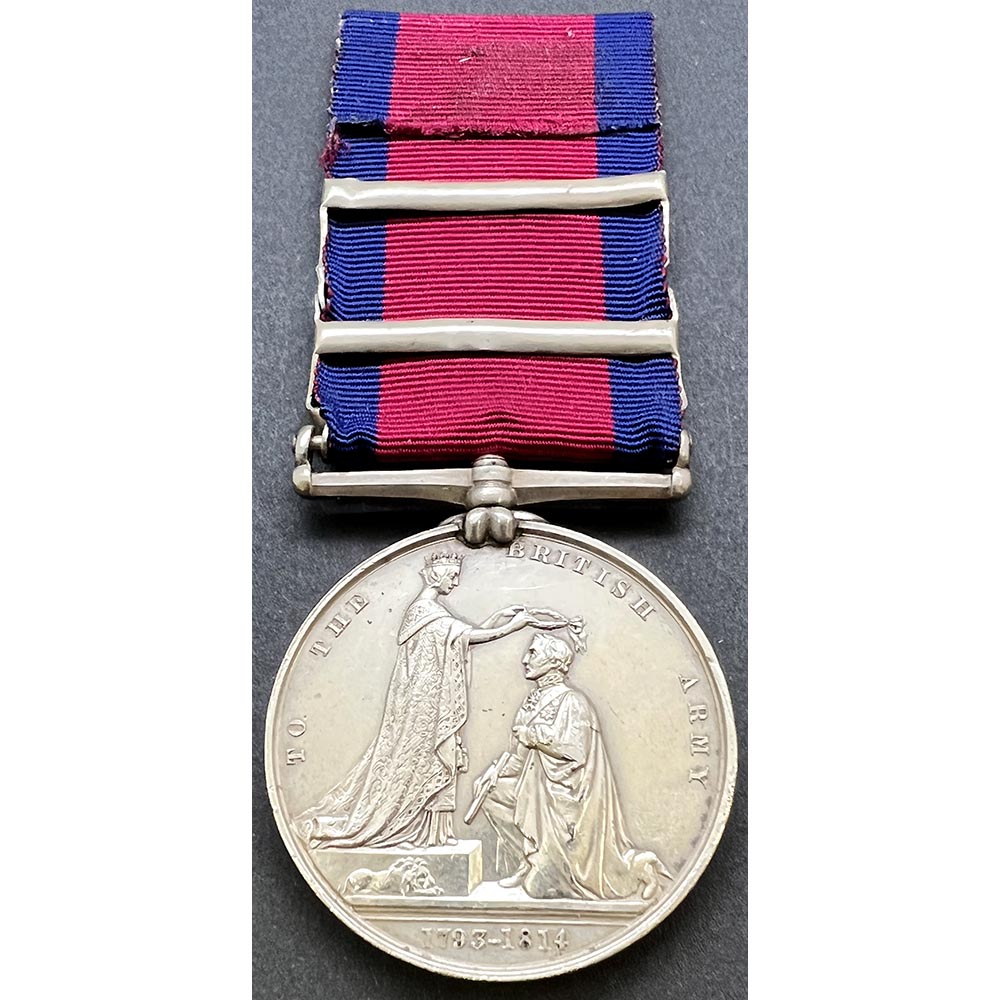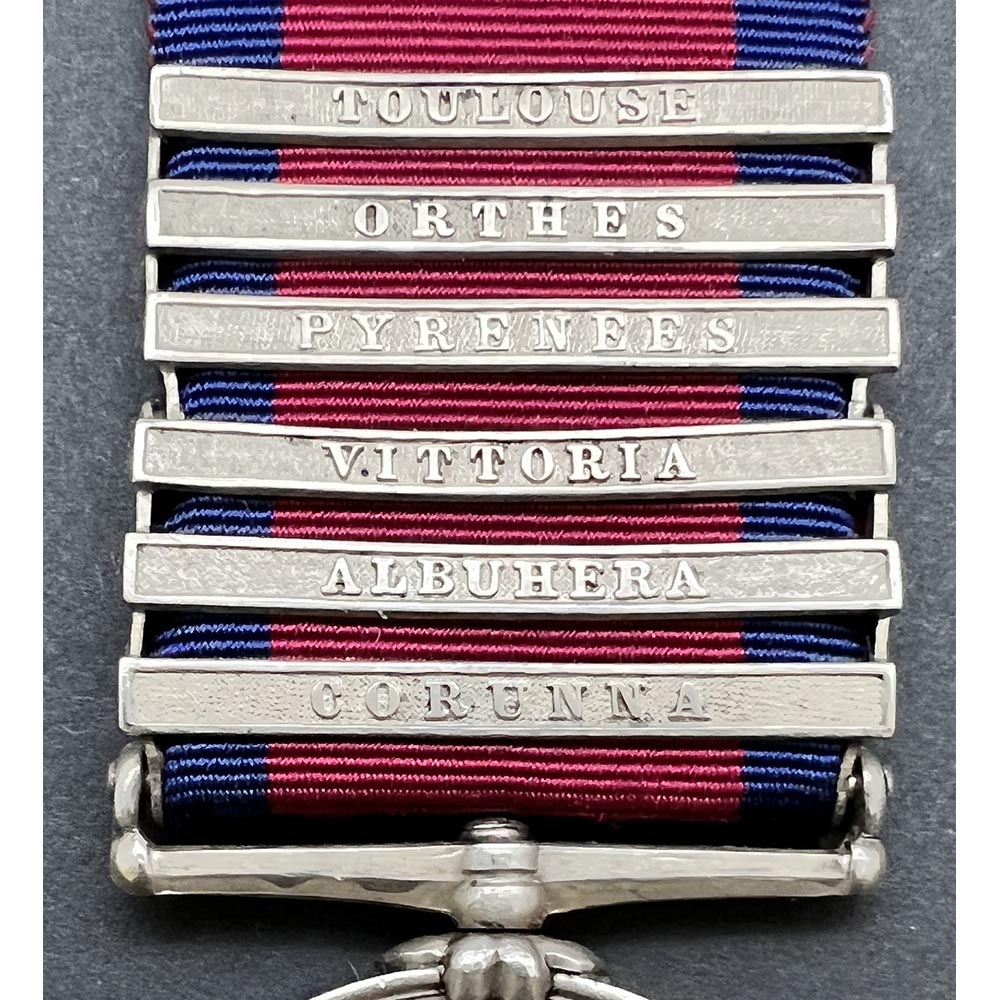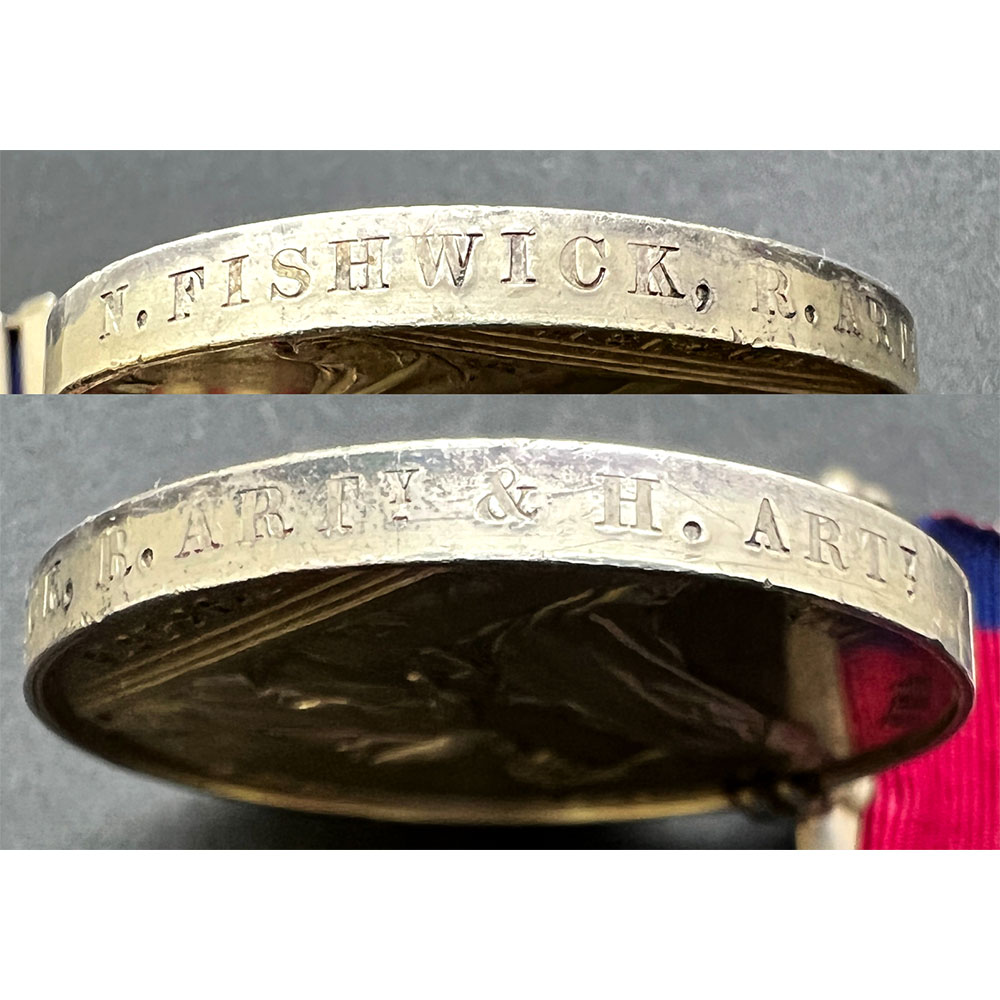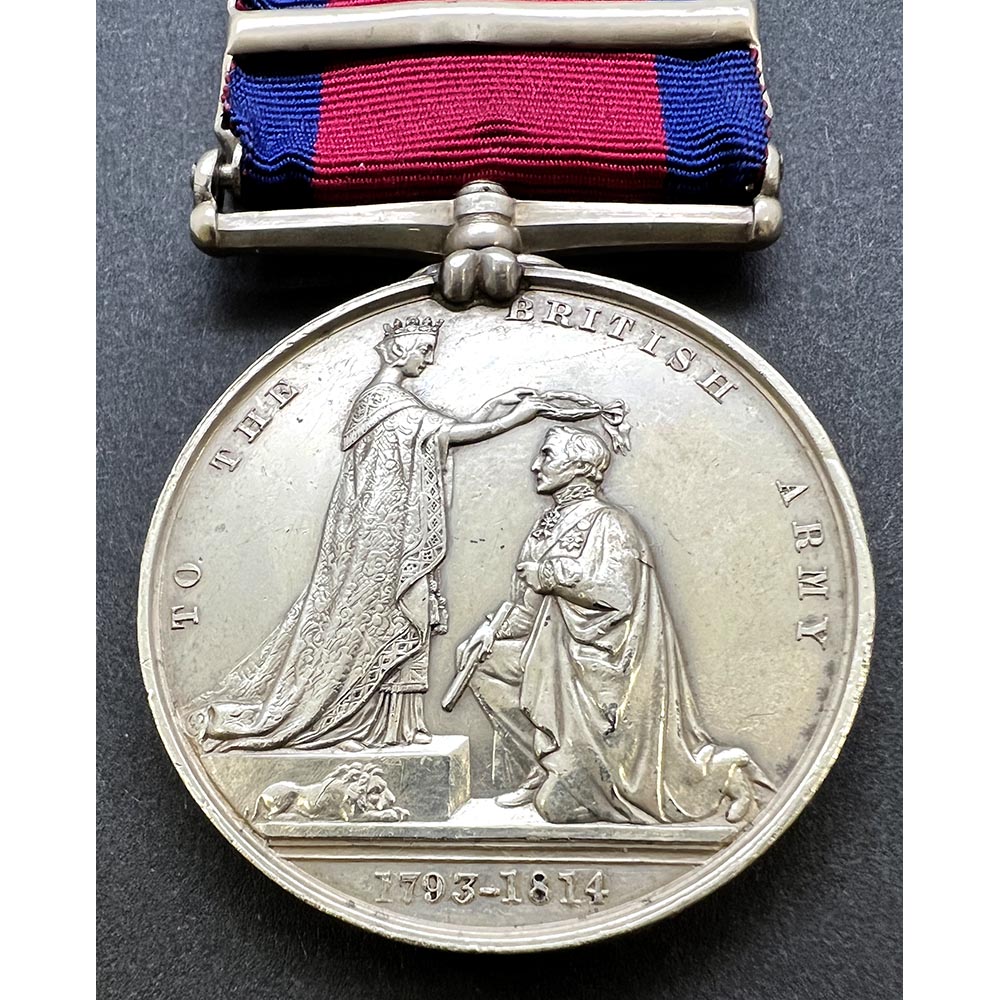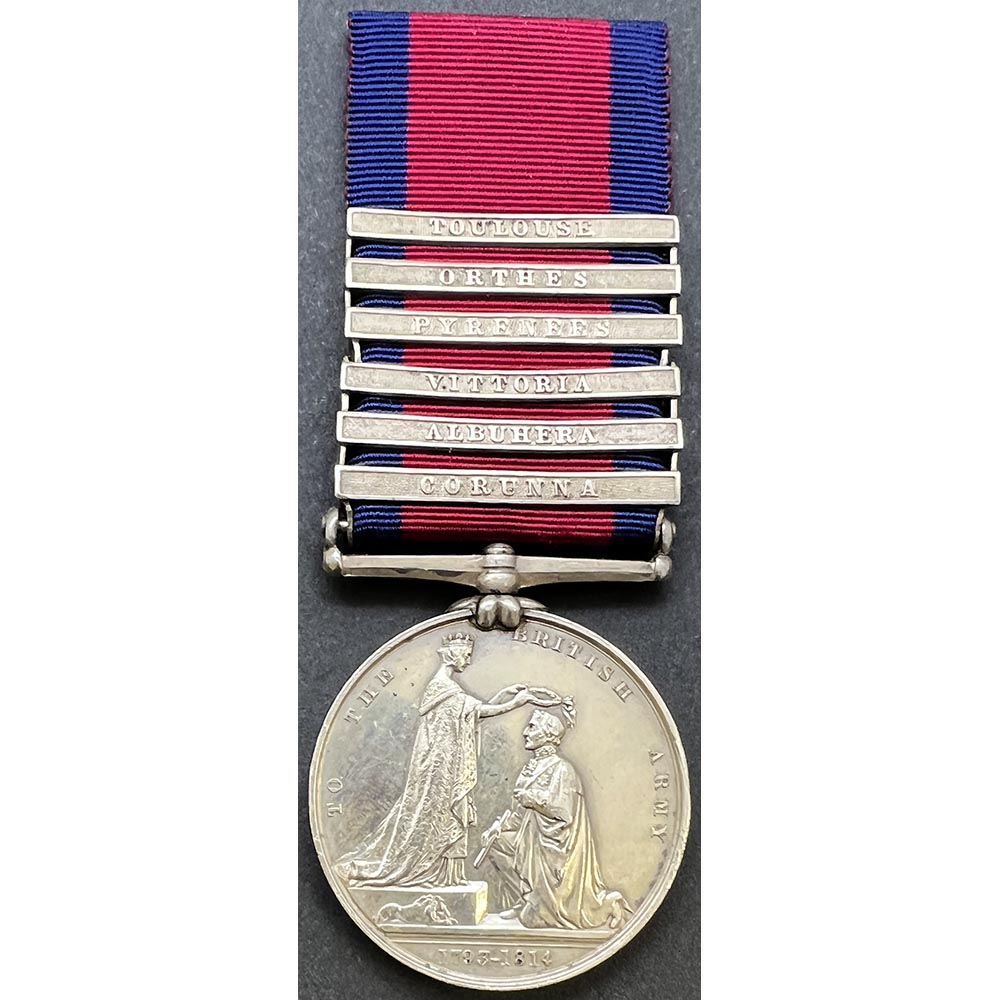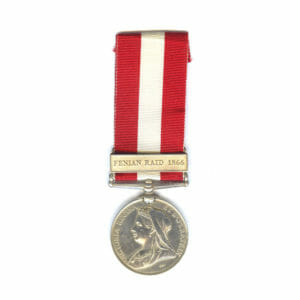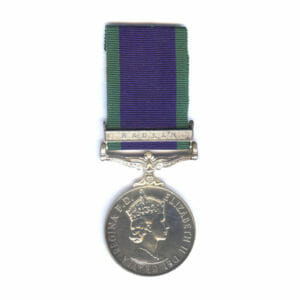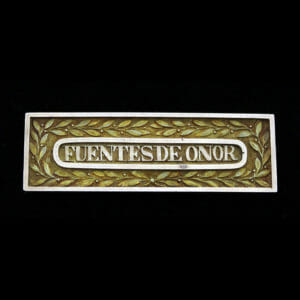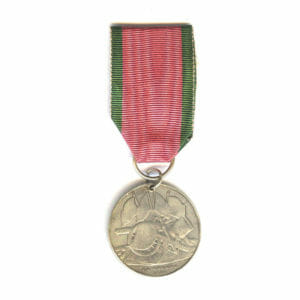Description
Military General Service Medal, 6 bars, Corunna, Albuhera, Vittoria, Pyrenees, Orthes, Toulouse, Nathaniel Fishwick, Royal Artillery and Royal Horse Artillery.
Officially impressed: “N. Fishwick, R. Arty & H. Arty.”
A unique combination to the Royal Artillery and the only NCO to earn a double unit medal for service with both Royal Artillery as well as Horse Artillery.
Only slight signs of general wear, the recipient being over 60 at the time of issue, he would live another 20 years to die aged 80.
Saw service through the Peninsular War with C Troop, Cockburn/Crawfords 6th Battalion Royal Artillery at Corunna as well as Capt Bean’s D Troop of Horse Artillery for the remainder of the clasps.
With a file of copied service papers and muster rolls etc, including laminated colour copies of his service records.
Provenance: Christies, 14th March 1989, lot 16, £341.
Private Nathaniel Fishwick, was a Lancaster Man, from Bolton, in Lancashire. Born in Turton, Bolton, Lancs during 1787, baptised on 10th June 1787. He was the son of William and Alice.
He attested for service at Blackburn on the 1st February 1804, aged 19, having signed up for “unlimited service”.
This was however not entirely true, being born in 1787 he was in fact underage when he signed up, but having slightly increased his age, allowed him to earn an extra 2 years of “Man” service towards his pension.
A note in his papers state a 1831 board of enquiry, likely having noticed a discrepancy in his age, rather harshly they knocked 2 years service off his pension leaving 8 years 192 days instead of 10 years 192 days, as 2 of those years had been whilst underage.
He saw an busy 10 years 202 days of service, unusually fighting in the Peninsular Wars with both the Royal (Foot) Artillery and Royal Horse Artillery.
He was discharged on 21st August 1814, due to a reduction in the Army, and thus missed out on the Battle of Waterloo, this medal being his full entitlement.
Possibly a lucky escape as D Troop under Capt Beane would fight at Waterloo at Hougoumont Farm, and Fishwick’s old Commanding Officer Capt Bean would be killed during the battle.
With his retirement from the Army, he returned home to Bolton, and married Betty Dearden at Bolton Le Moors on 16th September 1815.
1851 Census, records a 64 year old Nathianiel Fishwick living with his wife and family in their son Peter’s house, living in Gate Pike, Great Bolton, Bolton, Lancashire. The family members mostly working as Cotton Hand Loom Weavers.
He died on 27th February 1867, about 80 years old.
His services during the Peninsular War:
Having joined the Royal Artillery in 1804, He was a part of the 6th Battalion R.A., they were first mobilised in the early part of the Peninsular War, arriving setting off from Portsmouth for Portugal in July 1808.
They arrived for service at Torres Verdas in September, in October at Santarem and in November at Elvas.
During December they fought in the Battle of Corunna before being sent into a retreat, taking refuge in Corunna, for the ensuing Siege.
After being freed from Corunna they were dispatched home, and this might have been the end of his war, leaving him with a humble single clasp Corunna medal all those years later, as this ends the involvement of the 6th Btn RA in the Peninsular War.
However, he instead transferred to the Royal Horse Artillery, joining the D Battery, under the command of Major George Beane, who were posted for service as part of the Cavalry Artillery, with the 2nd Division of Cavalry.
He saw significant service in the Vittoria & Pyrenees Campaign of 1813-14, earning the further 5 clasps for:
Albuhera
Vittoria
Pyrenees
Orthes
Toulouse
“Captain Beane’s Troop of Horse Artillery was with Sir Rowland Hill’s Force, under Major Carncross; and that officer was able to speak pride of the steady, well-directed, and destructive fire kept up by it, although exposed to a very severe fire of musketry.
On the 2nd March, Sir Rowland Hill’s force came up with the enemy, and Captain Beane’s troop performed services for which it was specially mentioned in orders.
Four guns belonging to it were brought into action with great effect; and one of them, under Lieutenant Brereton, after a few rounds, silenced two of the enemy’s, and forced them to retire. On this day, Captain Macdonald, of Captain Beane’s troop, distinguished himself in leading on the Portuguese troops, who had been forced back; and received Sir Rowland Hill’s thanks in public orders on the following day.
Sir Rowland took the opportunity of assuring Major Carncross that, on the several occasions on which the troop had been recently engaged, he had been much satisfied with the officers, non-commissioned officers, and men composing it.” – The History of the Royal Regiment of Artillery, Vol 2, by Maj Gen Dickson, records one of the occasions this Battery distinguished itself during the 1814 Campaign.
